The developer behind the game may have moved on, but the community around Counterplay Games’ Duelyst remains united, engaged and hard at work. After the servers for the turn-based tactical strategy game went offline in February 2020, dozens of dedicated fans put up their hands to bring it back to life.
It’s not the first time enthusiastic fans have tried to resurrect a discontinued title. The gaming world is littered with similar passion projects, from Goldeneye: Source to Beyond Skyrim. Still, it’s hard to imagine a more fitting turn for Duelyst. The community around the game has always been a central part of the story.
The Duelyst historian
Boronian has been involved with the Duelyst fan community for years. He managed the community wiki, wrote guides, uploaded decks to fan-sites like Duelspot, and helped out with organising tournaments. Today, he moderates the game’s subreddit.
Despite the shutdown, Boronian said that Duelyst still has ‘a small but very loyal fan base.’ He jokingly admits that he’s sometimes known as the game’s unofficial historian. Personally, he finds the nickname funny because he formally studied history, ‘once upon a time.’
More broadly, it’s worth mentioning that he did also write a 15-page document chronicling the history of Duelyst from the perspective of its most diehard fans.
Sadly, the road to modern digital card games like Magic: The Gathering – Arena, Gwent and Legends of Runeterra is littered with the carcasses of card battlers that couldn’t quite cut it. It’d be easy to dismiss Duelyst as just another one of those. However, games like Artifact, Scrolls, Titanfall: Frontline and Duelyst don’t just show us what could have been – they give us a glimpse of the inevitable.
Physical card games like Netrunner continue to be played long after their last printing, but games like Hearthstone will only be around as long as their servers are. Given enough time, even the most popular digital card games will go just as dark as Duelyst.
The Beginning
Crowdfunded via Kickstarter in 2014, developer Counterplay Games pitched Duelyst as a tactical, turn-based strategy game with a focus on ranked competitive play.
Blending together a lush science fantasy aesthetic and crunchy low-fi pixel graphics, Duelyst looked to squish together the pick-up-and-play accessibility of something like Hearthstone, with the depth of turn-based tactics titles like Front Mission and Fire Emblem.
While Duelyst smashed through its original fundraising goal by attracting $137,000 in Kickstarter pledges over its original goal of $80,000, Boronian said that ‘it was still only a modest success considering that they aimed to create a pure online competitive game without almost any single player content.’
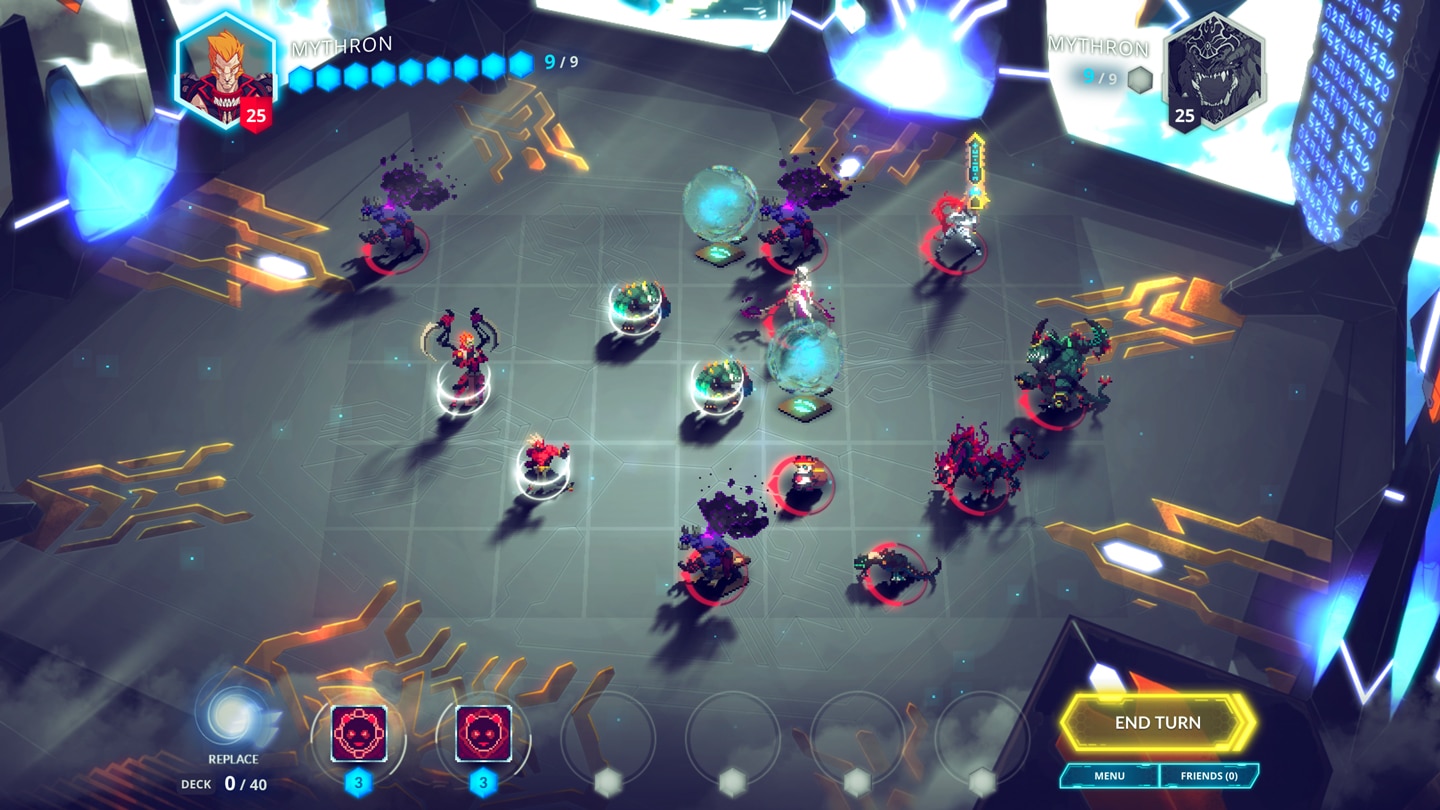
At the time, Counterplay Games was only a small indie studio. Today’s Counterplay Games fields a workforce of over 140 people. The one that pitched Duelyst in the midst of the Kickstarter boom was around half a dozen people in size.
Originally a backer for the game, Umbrella joined Counterplay Games as a community manager in early 2015. While it was the unique art style and a love of card games that originally drew them to the game, Umbrella said that the community around Duelyst was a big part of what kept them engaged.
‘At that point in my life I spent a lot of time getting close with various online communities, and I loved getting in on the ground floor – playing games before they were balanced, and participating in communities small enough that people could recognise my name on [the] ladder. That’s always been an experience I valued a lot, and honestly one that’s pretty hard to recreate! It’s genuinely magical,’ they explained.
Umbrella said that hiring from within the Duelyst community was fairly commonplace, and that this contributed to a unique development vibe. ‘I’ve got to say having worked longer in [the] games industry, it’s really remarkable what sort of atmosphere Duelyst cultivated.’
Umbrella said that the combination of community members and super passionate developers meant that everyone involved behind the scenes was well-looped into the community, and deeply motivated to make Duelyst the best game it could be.
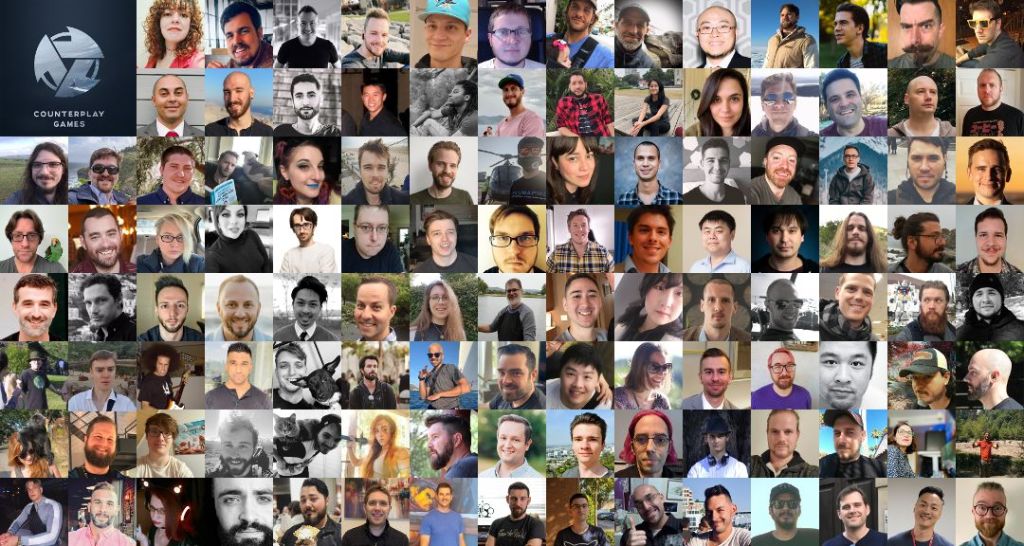
‘At the level above that though, there really wasn’t much leadership or structure, which definitely made for an interesting dynamic,’ they added.
Despite the superconductor of enthusiasm being assembled within Counterplay Games itself, Boronian said that bad communication between early backers and the Duelyst development team was something of a recurring theme. According to him, Duelyst’s early missteps were much the same as many Kickstarter projects of the time.
The cost estimates presented by the campaign were either optimistic or outright wrong, and many of the promised physical rewards for higher backer tiers failed to materialise. More than these more typical crowdfunding issues, Boronian said it was the speed with which Counterplay Games began to make big changes to what they had originally promised that ruffled a lot of fans.
Changing the game
Midway through development, it was decided that Duelyst would no longer be a pay-to-play title where cards were earned through play, but a free-to-play one where cards were earned through play… and microtransactions.
Speaking to RockPaperShotgun in 2016, Counterplay Games CEO Kieth Lee said that the change was a tough decision, but a necessary one as the scope of the project grew.
‘When we started to build the game and the technology, the realisation came through that we could release this very small game, but we couldn’t realistically add more factions or more cards,’ he said.
Another divisive ‘bait-and-switch’ controversy for the game community came at the end of Duelysts’ open beta, when the developer abruptly changed the rules of the game from 2-draw to 1-draw.
Looking back, Umbrella defended the change.
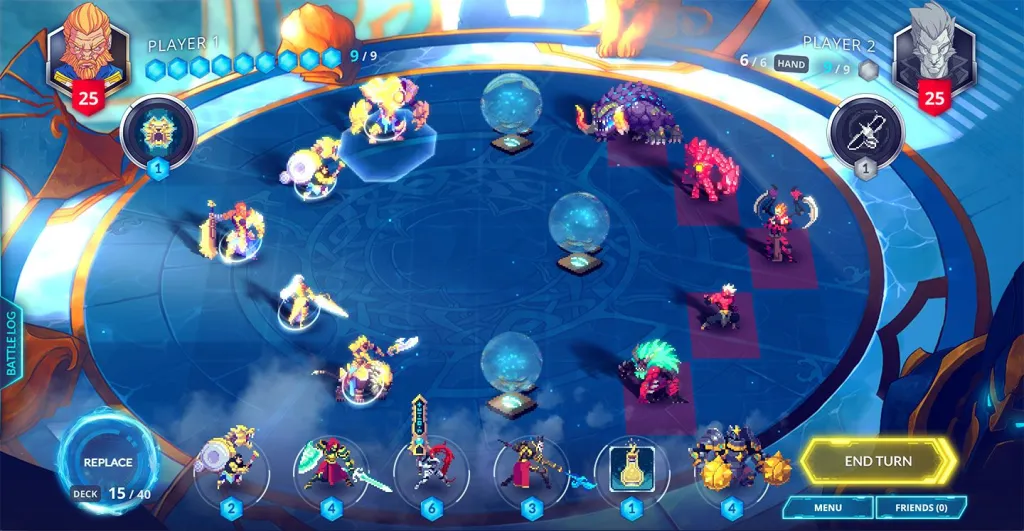
During their time at Counterplay, they worked in a mix of roles covering community management, QA, customer support, and design.
‘The biggest concerns we had with Duelyst was that the games felt very consistent, and that the gameplay existed in such a way where it was significantly more difficult to continue to develop novel concepts,’ they said.
Umbrella said this change immediately made matches more varied, laying the foundation for new design possibilities. Nevertheless, as with the shift to free-to-play, longtime Duelyst players felt aggrieved that such a big gameplay change had been implemented without any sort of testing or community consultation.
It wouldn’t be the last time they felt this way.
Growing pains
In July 2017, Counterplay Games signed a partnership deal with Japanese publisher Bandai Namco to help Duelyst ‘improve, grow, and develop.’
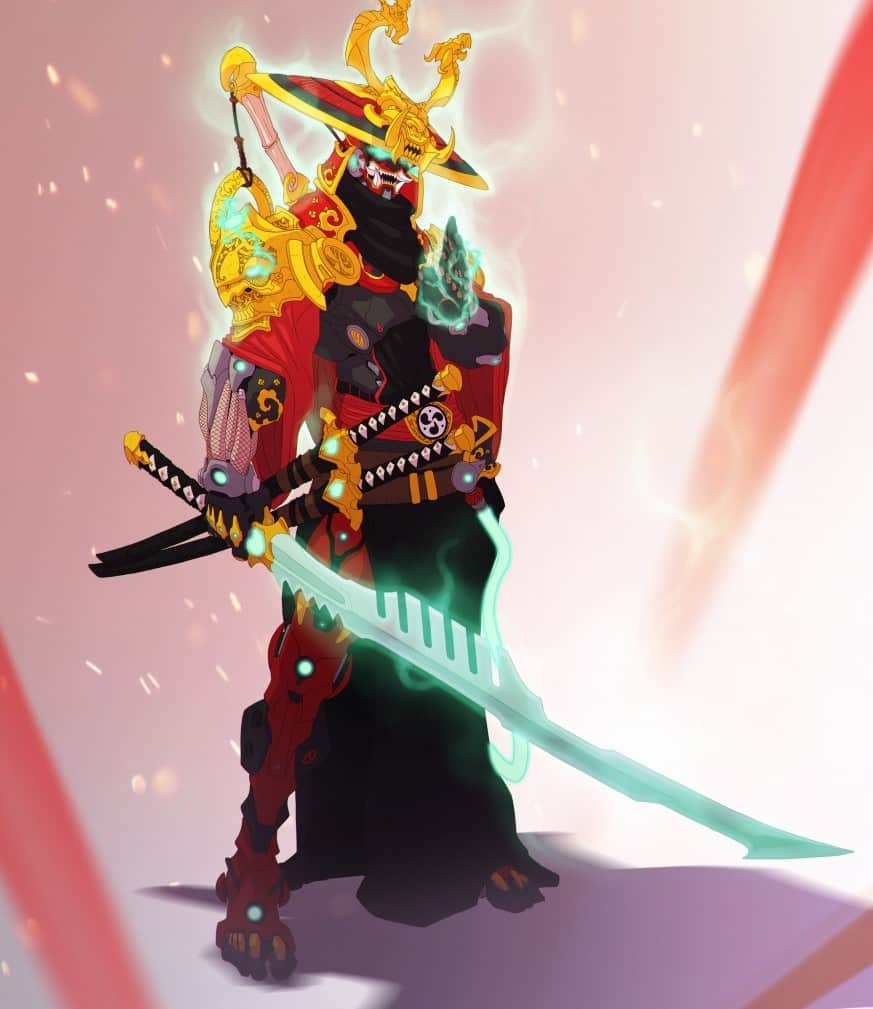
Initially, the Duelyst community was optimistic about the partnership.
With a major publisher taking the reins on elements like server infrastructure, advertising and customer support, Counterplay Games would be free to concentrate on pumping out new content for the game.
‘This partnership actually frees up the Counterplay team to focus solely on development. Our developers can now focus their time and effort into creating more fun and engaging features for anyone, casual or hardcore players alike,’ the developer promised in a since-deleted blog post.
Unfortunately, the tone of community discussion around the partnership quickly soured.
Several months after the partnership was inked, reports alleging players outside the US had lost access to both the game and their accounts began to circulate in the Duelyst community.
In a statement on the Duelyst forums, Counterplay confirmed that players in over twenty countries (ranging from Lebanon to Ukraine to Macau and Sudan) would no longer be able to create an account or play the game.
Meanwhile, existing players in other regions like Russia and China became subject to new restrictions – such as being unable to make in-game payments.
‘We are very sorry for the confusion and strife this issue has brought to the Duelyst community,’ a statement from Counterplay Games said at the time.
The partnership also somehow managed to make the tensions between the game’s hardcore playerbase and the development even worse. Since the game’s new community managers would only engage with players via the game’s forums, Duelyst’s Discord and Reddit communities felt completely ignored.
Umbrella said that Bandai Namco had a heavy focus towards the forums when it came to community management, adding that their involvement sometimes made it feel like there was an additional layer between the development team and the Duelyst community.
‘I felt like I had to be a bit more careful with what I said, so I wound up just participating less in the community,’ they said.
Reached via a spokesperson for the company, Bandai Namco declined to comment on this story.
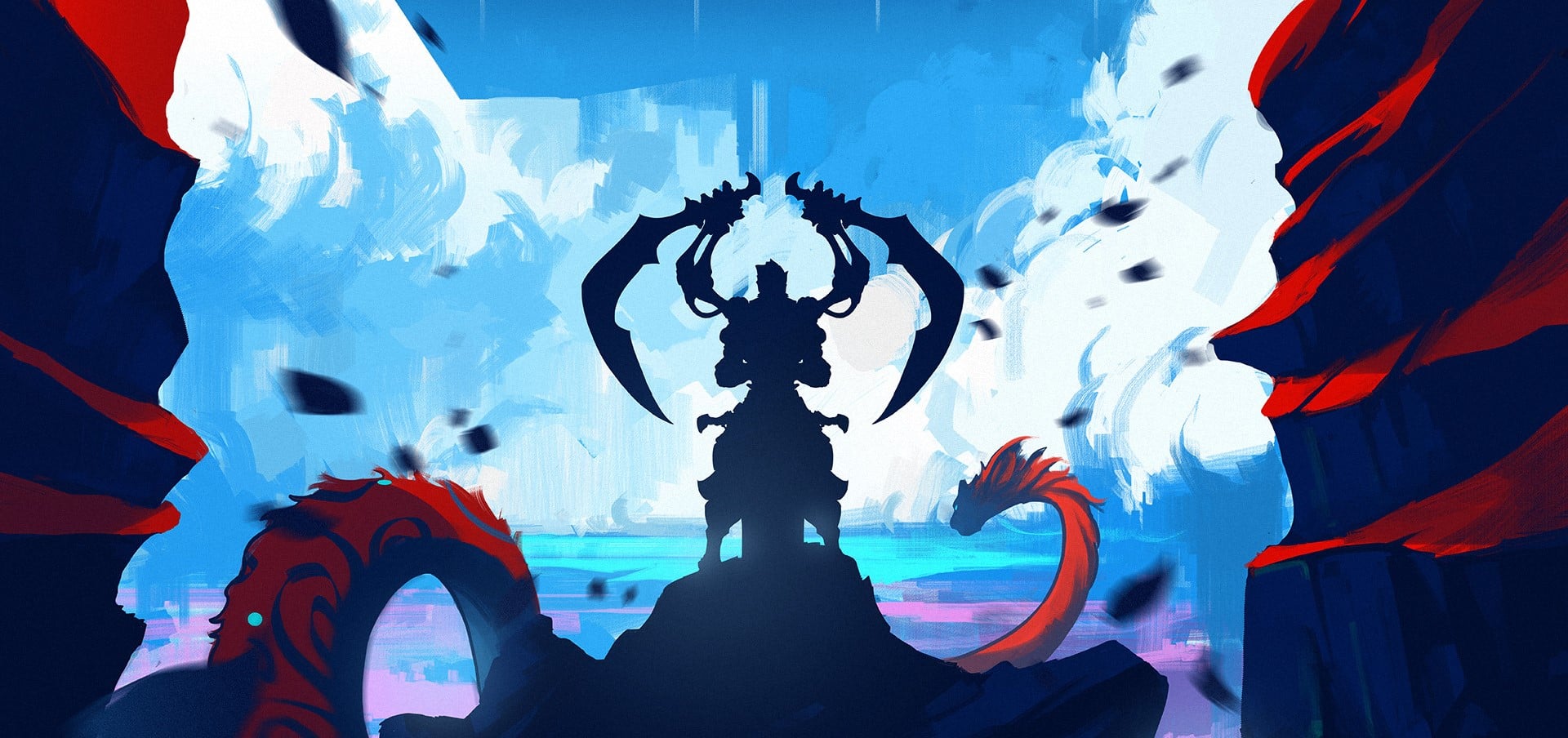
The End?
Following the launch of the game’s sixth expansion in March 2018, the Duelyst community entered a long 18-month stretch where, hotfixes aside, the game received no new content.
While Boronian calls this period of stability one of the best metas in Duelyst’s history, he said that the writing was on the wall. In January 2020, Counterplay Games announced that Duelyst’s servers would go offline at the end of the following month.
From Boronian’s perspective, it felt like the developer behind Duelyst was now more-or-less entirely focused on their next game: Godfall.
Then again, the consequences of the earlier choices made by Counterplay Games may have made saving Duelyst more difficult than simply meeting the costs of keeping the servers online. At this point, the infrastructure around the game was so integrated with Bandai Namco’s own that the effort required to disentangle the two without breaking everything likely proved hard to justify.
While the Duelyst community weren’t ready to let go of the game, they now faced the same challenges as many working in the world of video game preservation do.
The challenges of video game preservation
Video game archivists have always had unique logistical and legal challenges, but the broader shift by the industry towards always-online and live service experiences over the last two decades has made preserving defunct games like Duelyst particularly difficult.
Andrew Borman, a digital games curator at the Museum of Play, said that the requirement of interactivity presents a specific challenge for preserving many modern games.
Read: Collecting the history of video games
While museums like the Strong National Museum of Play can create and run a server for a defunct online game, they can only do it under certain circumstances.
‘You have to be using legally-obtained source code to do it. You’re not able to just go out and create your own server emulator,’ he explained.
Even if they do get the go-ahead from the original developer and publisher, Borman added that the pool of talent that’s able to help develop a server emulation process for a dead game is incredibly small.
‘It’s pretty difficult to find somebody with the skills needed to do any sort of server emulation project, even at a professional corporate level, but then to find somebody who is also interested in doing it for a small game… your window of potential people to work on that sort of project is actually pretty small.’
Even then, once you’ve got the legal approval and someone who knows how to go about emulating the server for an always-online game like Duelyst, Borman said that there are still other issues you need to resolve, and important questions you need to answer – including what form you want the game to take.
‘Everybody has a different memory of what it was,’ he pointed out.
Never say die
As a lead designer on the ongoing community effort to resurrect Duelyst, Sibon is dealing with this exact dilemma. Like Boronian, Sibon harbours a great fondness for the game. That said, he isn’t afraid to talk frankly about its missteps.
Sibon started playing Duelyst in 2015, and quickly fell in love.
According to him, the ability of Duelyst fans to argue endlessly over the merits of certain positioning showcases ‘a depth that just doesn’t exist in anything else I’ve played, aside from maybe Faeria – though I prefer Duelyst’s execution of the idea greatly.’
His fascination with Duelyst ultimately led him to be hired as a designer on the development team in 2016.
While he moved onto the Godfall team after active work on Duelyst ceased in 2018, he said that the game ‘always kept a special place in [his] heart.’
Sibon actively played and participated in tournaments until the very end, ‘winning the last team tournament and going undefeated throughout the last solo tournament.’
He said that when the closure of the game was announced, the community was heartbroken, but quickly began to brainstorm ideas about how to keep the game running in some shape or form.
‘The plan that gained traction at the start was to create a game with similar mechanics, but new assets, to avoid any potential legal issues. Everyone knew it would be slow-going, but I volunteered to help out anyway,’ he said.
Eventually, Sibon reached out to his contacts at Counterplay Games to make sure they were aware of the spiritual successor that the Duelyst community was trying to make, and to ask if anything could be done to try and bring the game back.
One thing led to another, which led to a series of meetings.
The Revival Project
After Counterplay were shown a demo build of the fan remake, Sibon said that ‘we were able to come to an agreement that would allow us to bring back the original Duelyst – characters, gameplay and all.’
As a result of that agreement, the game is no longer an entirely open-source or community-run project – though those working on it remain unpaid volunteers.
Sibon said that the core team is around 15 people, but encompasses as many as 25, with things moving along ‘slowly but surely.’
Sibon said the team were hoping to launch a public beta for the project in 2021, but a statement released in late 2021 confirmed that this timeline had slipped due to ‘several key devs leaving or taking a reduced role in the project.’
‘Rather than give another date and risk having to go through this again, I’ll just say that we’re getting the game ready for open beta as soon as possible,’ it read.
While the plan is to launch the remake with just Duelyst’s core set of cards, Sibon said that the post-launch road map for the project looks a little different to the path that Counterplay Games went down.
For him, the remake is an opportunity to explore an alternative timeline for the game that Duelyst could have become.
‘Instead of pivoting to 1 draw, hero powers and more RNG heavy effects, [this version of] the game sticks closer to the path it was on during beta,’ he said.
Sibon said that the team behind the Duelyst remake plans to release expansions that recycle the art found in the expansions of the original game, but remix those familiar cards with new or different effects.
The way that Duelyst is monetised is another thing that the team behind the fan remake hopes to address.
According to Sibon, ‘we have the privilege of bringing Duelyst back as an official fan revival, and want as many people as possible to be able to enjoy it again, whether they can spend money on the game or not.’
He said that ‘the line for what is and isn’t consumer friendly can be a very subjective thing,’ but adds that the details are still being worked out.
‘We’re also hoping a successful mobile launch will help the game thrive, or at least help us keep the lights on,’ he said. This new mobile port of Duelyst is being developed in tandem with the remake.
One thing that won’t be changing, however, is the necessity for third-party infrastructure to keep the game running.
Sibon said that the team ‘have no current plans to support offline play for Duelyst. It would be difficult due to our current setup being entirely server authoritative, and anything beyond a live service game would need to be discussed with Counterplay Games first.’
Revisionist history
The community around Duelyst has always been a big part of the story, so perhaps it’s fitting that they’re the ones writing the next chapter for the game. After all, it’s always those who are most invested in the digital card gaming space that are left to grapple with the genre’s own mortality.
Umbrella expressed mixed feelings about the revival project.
‘I’m very excited to be able to return to a version of a game that really means a ton to me, and to see some small community rally around it,’ they said, citing the poor track record that gaming has when it comes to preserving older works.
On the other hand, Umbrella isn’t particularly thrilled by the revisionist mindset around the project.
‘It’s also a little hard to see years of loving content made by the team sort of posited as ‘bad’ because it wasn’t from this super old, very specific patch,’ they said.
Umbrella said that it’s disheartening to see the passionate people involved with the project choosing to put themselves in a position where they’re going to run into the same problems that the game’s original development team did.
‘I wish them the best at overcoming those obstacles, but it truthfully seems naive to me,’ they said.
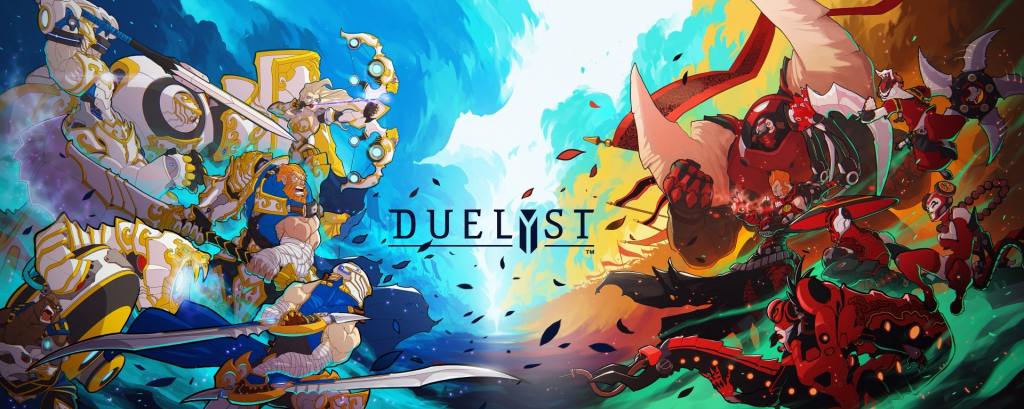
Perhaps the biggest question that the Duelyst community needs to answer is whether they’re actually capable of building a version of this game that attracts an audience that isn’t just them.
‘I think it’s likely they want to make sort of a niche time capsule of a specific period of Duelyst and I definitely think they can succeed on that front, but if [the] intent is to return to the former glory of Duelyst, I know they’ve got a long and difficult road ahead of them, and it sounds like it’ll take them even longer to clear it as they want to revisit old hurdles that have already been cleared for them,’ they said.
The next chapter for Duelyst might be in the hands of the community, but if they’re not careful, they could end up repeating the mistakes of the past, rather than learning from them.
Disclosure: The author of this piece was a backer in the original Kickstarter campaign for Duelyst.





